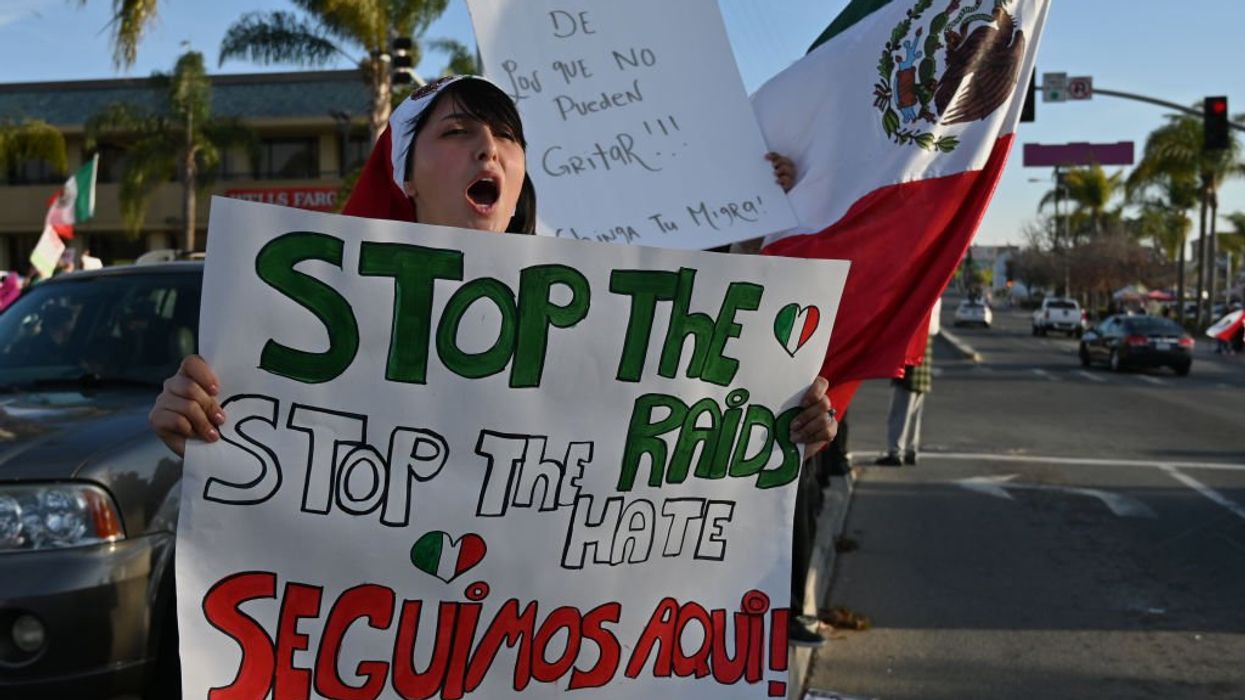Polling on what to do with undocumented immigrants in the US has found seemingly contradictory results. When mass deportation is asked about by itself, some polls have found slight majority support. But that is not Americans’ preferred solution. When given another option – a path to citizenship – a substantially larger majority chooses that over mass deportation. Also, as people get more information about both options, support for mass deportation drops – to as low as a one-in-four.
Americans are clearly concerned about the number of undocumented immigrants, and when the only option they are given to address that problem is mass deportation, a majority may go along with it. For example, a September 2024 poll, which asked whether they favor “the mass deportation of undocumented immigrants,” found a small majority of 54% support. ( Ipsos/Scripps News) A more recent poll that asked the same question found the public divided 49% to 49%. ( NPR/PBS News/Marist, January 2025)
But asked whether they favor, “allowing immigrants living in the U.S. illegally the chance to become U.S. citizens if they meet certain requirements over a period of time,” a much larger majority of 70% were in support. ( Gallup, June 2024)
What is most relevant is what Americans say when they are given both options and asked which they prefer – which more accurately reflects the reality of the policy landscape. Given both options, majorities consistently prefer a path to citizenship over mass deportation. An October 2024 poll found just 33% support “deporting all people living in the U.S. illegally,” while 67% preferred “developing a plan to allow some people living in the U.S. illegally to become legal residents.” ( SSRS/CNN) Similar results have been found by the Public Religion Research Institute since 2013.
Even without both options being presented, providing more information about mass deportation reduces support to the below half. An August 2024 poll asked whether they would support “deporting immigrants who are living in the United States illegally back to their home countries even if they have lived here for a number of years, have jobs and no criminal record” – which accurately describes the majority of undocumented immigrants – and found just 45% in support and 55% opposed. ( Marquette University)
When people are given detailed information about both policy options and allowed to deliberate on arguments for and against each, support for mass deportation drops even further. An October 2024 survey by the Program for Public Consultation (PPC) provided respondents with a detailed briefing about undocumented immigrants and current deportation efforts, provided them descriptions of the mass deportation and path to citizenship policy proposals, and had them evaluate arguments for and against each. Finally, asked whether they prefer mass deportation, a path to citizenship with certain requirements, or neither option, just a quarter chose mass deportation (26%), including just 40% of Republicans. Overall, a bipartisan majority did not prefer mass deportation – instead choosing a path to citizenship (58%) or neither (11%) – including 58% of Republicans and 85% of Democrats. ( PPC, October 2024)
The overall drop in support for mass deportation as people are given more options and more information is driven primarily by Republicans, whose support goes from nearly nine-in-ten to just four-in-ten. When asked about mass deportation by itself, with no details about the policy, the Ipsos/Scripps poll found 86% of Republicans in favor. When given both options, but still no details about each policy, the SSRS/CNN poll found just half of Republicans prefer mass deportation rather than a path to citizenship (52% to 48%, statistically divided). In the more comprehensive PPC survey, just 40% of Republicans supported mass deportation. Among Trump voters, it was just 41%.
The underlying attitudes towards each policy help explain the public’s preferences. In the PPC survey, people evaluated arguments for and against both options before making their final choice. The arguments favoring mass deportation were found convincing by majorities overall, which explains the support for that policy when presented as the sole option. The arguments that these people are breaking our immigration laws, using public services, and lowering wages resonate with many Americans. However, the arguments against mass deportation and for a path to citizenship – that they are integral to our economy, and most have been living here peacefully for over a decade – did much better. Thus, when asked to choose, that is why a path to citizenship is the preferred choice.
Public opinion on mass deportation, it turns out, is quite clear when the question being asked is how the public most prefers to address undocumented immigrants. When people are given more information about the options available, the details of mass deportation, and given the opportunity to think through the options, support for mass deportation as the preferred solution drops well below half, overall and among Republicans.
Steven Kull is the program director of the Program for Public Consultation. Evan Charles Lewitus is a research analyst at Voice of the People.



















Trump & Hegseth gave Mark Kelly a huge 2028 gift